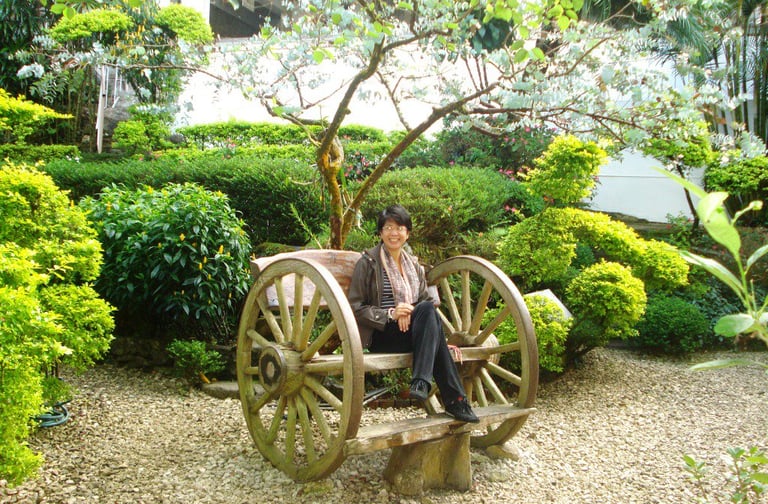8 Powerful Memoir Books That Blend the Personal and the Historical
READING AT WORDHOUSEFREELANCE


My personal choice of memoirs that blend personal narrative with historical context
Memoirs are more than just life stories—they are portals into broader histories, cultures, and collective truths. The most compelling memoirs show how what is personal is often profoundly historical, revealing how individual memory can reflect the spirit of an era. The following is my personal choice list of memoirs that blend personal narrative with historical context. Each book is grounded in the writer’s intimate, embodied experience and offers insightful, often moving reflections on race, war, migration, gender, and faith.
1. When Breath Becomes Air by Paul Kalanithi
A Personal Confrontation with Mortality and Meaning, Pages: 228
This heart-wrenching memoir by neurosurgeon Paul Kalanithi explores his transition from doctor to patient after being diagnosed with stage IV lung cancer. It’s an intensely personal reflection on death, identity, and the human spirit. Although not overtly historical, it captures the medical culture of early 21st-century America and raises timeless questions about what makes life meaningful.
2. The Woman Warrior by Maxine Hong Kingston
Blending Myth, Family, and Historical Memory, Pages: 209
Maxine Hong Kingston’s groundbreaking memoir is a masterpiece of storytelling, weaving her personal experiences as a Chinese-American woman with traditional Chinese myths and immigrant narratives. The book stands out for its hybrid form—part memoir, part myth, part social commentary. It contextualizes her life within the historical framework of immigration, sexism, and cultural silence in mid-century America.
3. Educated by Tara Westover
Escaping Family to Encounter History, Pages: 334
Tara Westover’s personal journey from a survivalist household in Idaho to earning a PhD from Cambridge is a riveting tale of self-invention. While deeply rooted in family dysfunction, the memoir is also a broader historical commentary on isolation, alternative education, and the American rural experience. It highlights how one’s sense of reality can be shaped—or warped—by ideology and seclusion.
4. The Diary of a Young Girl by Anne Frank
A Personal Record of Historical Atrocity, Pages: Approximately 283 (depends on edition)
Anne Frank’s diary remains one of the most powerful personal documents of the Holocaust. Written by a teenage girl hiding from Nazis in Amsterdam, the entries offer a daily account of fear, hope, and the desire for normalcy. The historical context is both explicit and implicit in every page. What makes it enduring is its raw, youthful honesty that turns the abstract horror of war into something heartbreakingly specific.
5. I Know Why the Caged Bird Sings by Maya Angelou
Personal Growth Amid Historical Racism and Trauma, Pages: 289
The first in Maya Angelou’s series of autobiographies, this memoir spans her early years in the American South during the Jim Crow era. Angelou’s personal voice is lyrical and strong, recounting trauma, resilience, and the shaping power of language. The book serves as a historical lens into Black girlhood in a segregated America, with themes still deeply resonant today.
6. Night by Elie Wiesel
Personal Testimony of Historical Horror, Pages: 120
Wiesel’s personal memoir recounts his experiences as a teenager in Auschwitz and Buchenwald. Short yet shattering, Night is an essential text on the Holocaust. It serves as a historical witness to genocide, loss, and spiritual crisis. The power of this memoir lies in its sparse, unadorned language and its moral urgency—reminding readers that memory is both obligation and resistance.
7. Persepolis by Marjane Satrapi
Graphic Personal History During Iran’s Islamic Revolution, Pages: 153 (Part I), or around 341 pages for the complete edition
Persepolis is a graphic memoir that recounts Marjane Satrapi’s childhood and early adulthood in Iran during and after the Islamic Revolution. The format—black-and-white comic panels—adds immediacy to the narrative. This is both a personal coming-of-age story and a historical documentation of political upheaval, censorship, and exile. Satrapi’s voice is sharp, humorous, and defiant.
8. In the Dream House by Carmen Maria Machado
Queer Personal Narrative Meets Archival Experimentation, Pages: 251
This experimental memoir chronicles Machado’s experience in an emotionally abusive same-sex relationship, refracted through various literary and cinematic tropes. It’s not just personal—it’s a formal rebellion against the silence surrounding queer domestic abuse. Interwoven with academic footnotes and historical asides, the book becomes an archive of marginalized experience, affirming that queer trauma, too, has a lineage worth recording.
Why These Memoirs Matter: The Personal as a Form of Resistance
All these books show how the personal story can serve as counter-history—an intimate refusal to be forgotten or misrepresented. In reading these memoirs, we learn that the historical is not just what’s recorded in textbooks but what’s remembered in hearts, bodies, and private notebooks. Memoir becomes a site where individual lives push back against erasure.
Moreover, in our digital age, accessibility matters. Most of these works are available through multiple platforms—Google Books, Audible, Kindle, and library lending apps like Libby or Hoopla. Some, like The Diary of a Young Girl, are even part of the public domain, ensuring free access to historical testimony.
Reading as Remembering
By choosing memoirs where the personal intersects with the historical, I get to not only empathize with individual lives but also engage in acts of remembrance and critical reflection. I get layered truths in these books. They have deepened my conviction that history isn’t confined to museums or monuments—it lives and breathes through personal stories on the page.st content.


